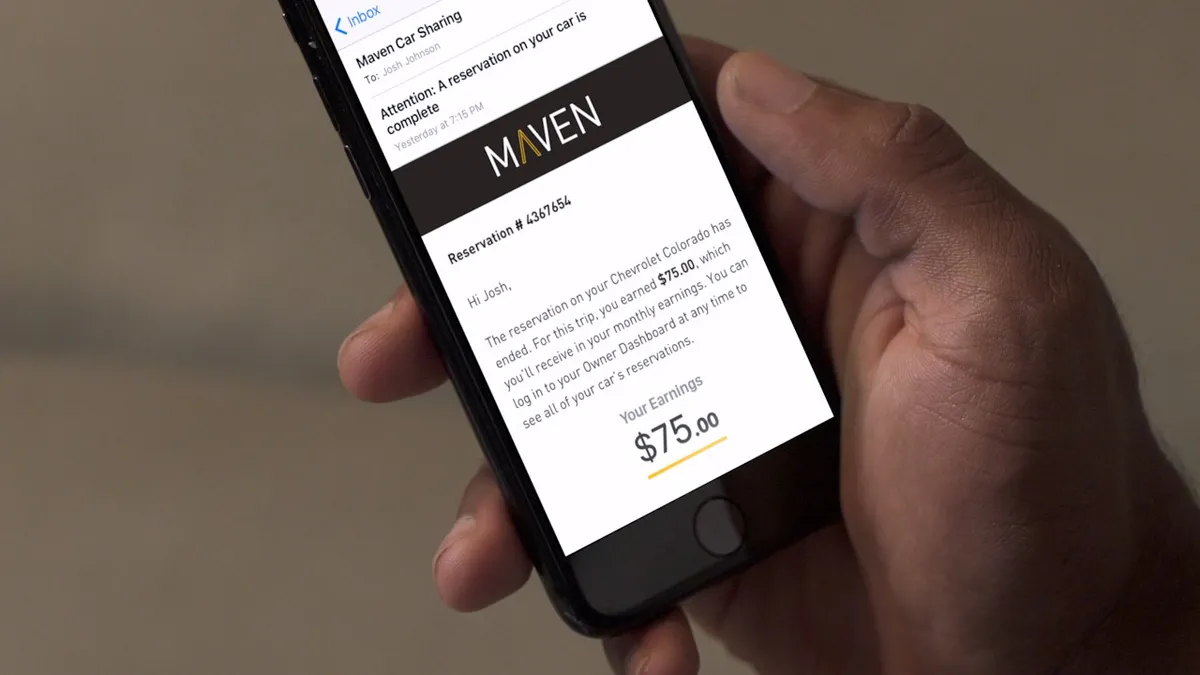Dive Brief:
- General Motors (GM) announced earlier this week its car-sharing service Maven will close down immediately, according to The Verge and others.
- In an email to customers Tuesday, Maven said it was a "tough but necessary decision" that came after "critically looking at our business, the industry, and what’s going on with COVID-19." The company did not respond to Smart Cities Dive's requests for further comment.
- The shutdown comes a month after Maven announced it was suspending its car-sharing service due to market conditions and guidelines from the Centers for Disease Control and Prevention (CDC). It also follows the company's decision last May to pull out of eight markets in North America. The Verge reports that Maven Gig, which made cars available for ride-hailing drivers, will also shut down, though that will take some time as GM waits for drivers to safely return the vehicles.
Wowwww, Covid19 claimed the Maven car-sharing platform, it's shutting down immediately. Bummer, it was one of the better ones. pic.twitter.com/tanmpjEhOS
— Owen Williams ⚡ (@ow) April 21, 2020
Dive Insight:
Most U.S. businesses have felt the effects of the novel coronavirus pandemic as government leaders have ordered shelter-in-place mandates and shutdowns of non-essential business. For a company like Maven, which scaled back last year in markets where it wasn't seeing high demand, the pandemic was a final obstacle that could not be overcome.
The shuttering of Maven marks the latest in a series of troubling signs for car-sharing companies, which have lost popularity amid the consistent rise of ride-hailing options and growth. Just two months ago, Share Now — formerly known as Car2Go — fully exited North America, London, Brussels and Florence after previously pledging to simply scale back service. Zipcar remains as one of the few established car-sharing services still available in U.S. cities, while Volkswagen has expanded its electric vehicle (EV) car-sharing program, WeShare, across Europe.
For cities without robust public transportation, a lack of car-sharing options could make it very difficult for people to get around, particularly amid the pandemic. Even in cities with a good transit network, these times are challenging. Many agencies have dramatically scaled back operations to prevent the spread of the coronavirus, and while transit received $25 billion in the recent federal bailout package to ease financial pressures, there are concerns it will still not be enough to keep operations afloat.
Meanwhile, there's the chance that as cities recover from the coronavirus and start to reopen their economies, single-occupancy vehicles will become a preferred method of travel due to sanitary concerns. Some are worried that could further undermine transit's recovery while at the same time adding to congestion.
To keep up with all of our coverage on how the new coronavirus is impacting U.S. cities, visit our daily tracker.












